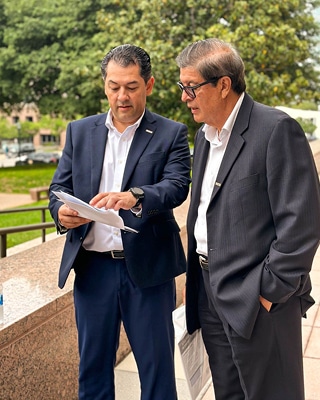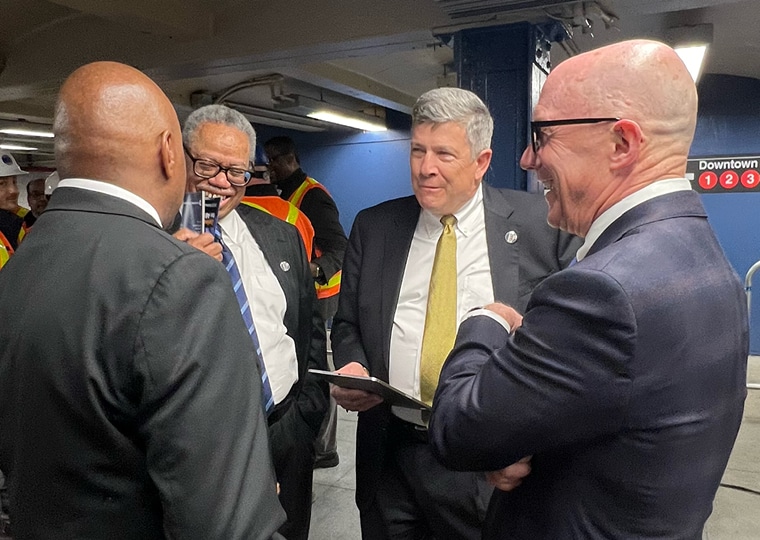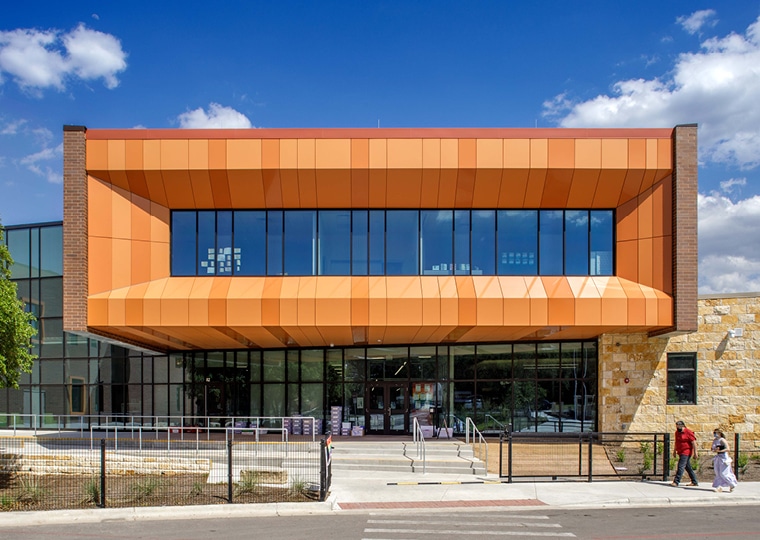
From helping to alleviate labor shortages to improving client outcomes, mentoring within the construction and program management profession traditionally produces positive outcomes for all involved. Just as mentorship positively impacts our clients and communities, it can also result in positive impacts for our entire firm.
Today’s students and interns are tomorrow’s PM/CM leaders. With a strong internship program that includes “lunch & learns,” site visits, dedicated peer support and engaging with leadership, students who collaborate with STV’s team of PM/CM professionals have the opportunity to witness the full spectrum of our industry.
Last year, STV engaged students from more than 35 universities and mentor programs and provided internships to one of its most diverse intern cohorts to date: 48% were women, 42% were Black Indigenous People of Color (BIPOC) and two were veterans. Several former interns are now full-time employees at STV, and some have become ambassadors at their universities and are recruiting future construction management leaders.
We all had a mentor at one point in our careers who shaped the leaders we are and aspire to be. STV’s piloted Partners Program has reimagined our firm’s previous mentorship models by incorporating direct feedback from our people. The program brings together our CM team for non-technical growth opportunities and interpersonal development.
Our team also provides mentoring for mid-career professionals through our involvement with programs like the Construction Management Association of America’s (CMAA) Construction Manager Certification Institute Certified Associate Construction Manager (CACM) credential. Through our leadership in this program, my hope is that we can help owners and employers identify professionals who are ready to move beyond entry-level tasks and help lead projects and programs, thereby creating CM/PM leaders of the next generation. CACM provides a path for mid-level professionals who are ready for more responsibility before leading entirely on their own.
As program and construction managers, our goal is to weave the fabric of the community into our projects. Part of that means bringing in companies that have ties to the community and understand the unique needs and challenges of each project. Mentor-protégé and joint venture opportunities allow STV to engage and find opportunities to grow capacity in the market and expand local business opportunities.
Partnerships are powerful tools. They help us navigate the project effectively, and in turn, they help create a better solution for the communities we’re serving. Infrastructure is local, so partnerships with Minority- and Women-Owned Business Enterprises (MWBEs) can be crucial elements to our clients’ success.
This benefits the local economy, the community, and the PM/CM’s ability to successfully navigate the project and provide the community with a project best suited for them. We believe on project delivery and relationships being local, so the MWBE partnerships are critical elements to our clients’ success.
To be able to find local folks is an important element in supporting CM growth. On a larger scale, this plays into our firm’s commitment to advance equity in infrastructure by increasing the number of historically underutilized businesses (HUBs) on our projects.
In the long-term, the time and effort it takes to focus on career growth for ourselves, our peers, our teams, and our professional organizations like CMAA is a crucial part of our industry’s success. By asking the right questions with an eye to the future I look forward to the successes of our future leaders.
Luis Delgado, CCM, PMP, is the president of STV’s Construction Management Division. A 24-year veteran in the industry, Delgado lends his voice to the business and political concerns of the Hispanic/Latino community in Texas as chair of the Regional Hispanic Contractors Association. He is a national board member of the CMAA and a past president of its North Texas Chapter and received CMAA Chairman’s National Award in 2017 for his contributions to expanding CMAA’s body of knowledge to Latin America.





